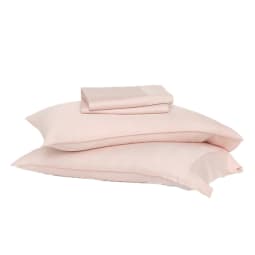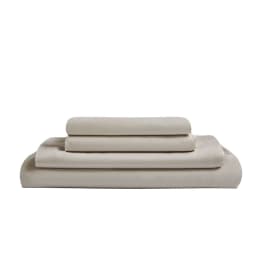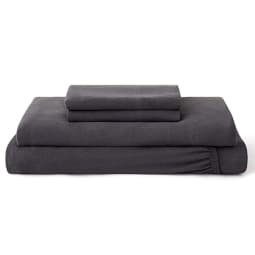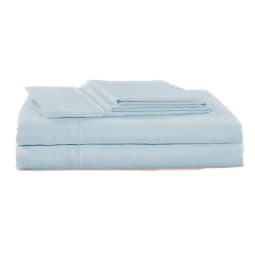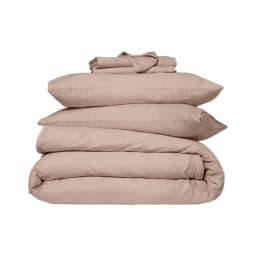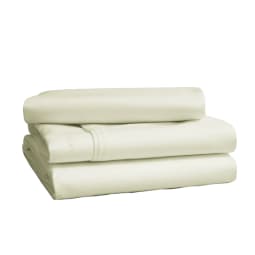You see, unlike other bedding materials like cotton, eucalyptus is not naturally soft. In order to be turned into sheets, it needs to go through quite a treatment: Eucalyptus first gets turned into wood chips, which are separated and mixed with chemicals until they turn to a pulp. The pulp then gets dissolved and run through an extrusion process until soft strands emerge into fibers. The chemicals used in this processing have historically harmed people and the planet. They’ve been linked to polluted waterways and increased risk of coronary heart disease2, leukemia3, Parkinson’s4, and stroke5 in factory workers. However, some new production processes now work with safer chemicals. While both are more responsibly produced, TENCEL™ lyocell is created using a closed-loop production practice that tends to be more sustainable. The fiber is USDA-certified biobased, and made using a process that reuses about 99.9% of water and solvents, explains Lenzing’s U.S. Marketing & Branding Manager, Ericka G. Garcia. (Read more about the difference between modal and lyocell here.) Many “eucalyptus” sheets—especially the ones that are marketed as eco-friendly—are made using Lenzing’s fibers. And while eucalyptus is one wood source used in the company’s fibers, it’s not the only one; meaning your “eucalyptus” sheets are more likely a blend of eucalyptus, beech, birch, or other wood and pulps. “Eucalyptus is one of the wood sources used, but it’s not the entire wood source,” Garcia clarifies on a call with mindbodygreen. “People like it because it’s easy to understand and sounds inviting, but it’s actually not a fiber content that you can label your product with per the FTC6.” Lenzing sources all of its wood from PEFC and FSC forests that are certified not endangered, so you can still feel good about their sheets—but just know that it’s not only eucalyptus you’re sleeping on, and brands need to be transparent about that. Reviewers rave that these sheets are very soft and cooling, though some note they are thinner than expected. What our testers say: “I love my Sijo sheets! They come in beautiful, earthy colors and it was hard to pick just one… They are super high-quality which you can tell with the stitching. I will call out that they run a little on the larger size but it wasn’t a problem for us. I love these sheets and highly recommend them to anyone who wants to make their bed feel a little more luxe.” — Danielle, Design Director Garcia points out that eucalyptus (Lenzing’s yarns in particular) also blend well with other materials. Often, manufacturers will pair them with cotton for a soft, cool combo or wool knit for a warmer winter sheet. These blends tend to be more affordable than 100% lyocell, while retaining breathability. Any of the eucalyptus sheet options on this list are highly recommended picks. Snuggle up in them for a few nights and you’ll totally forget you’re sleeping on a tree.








